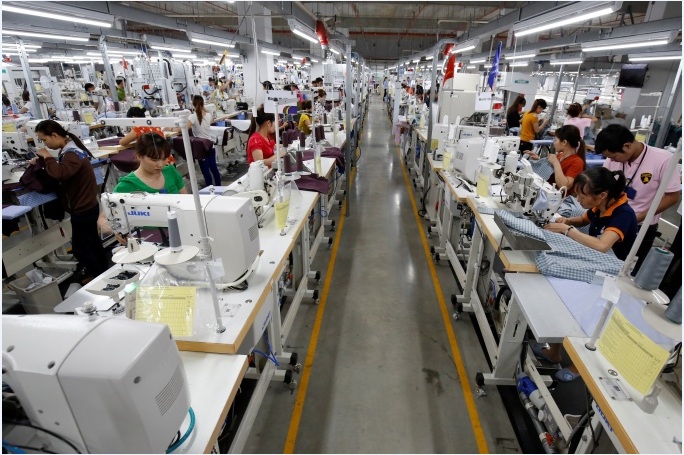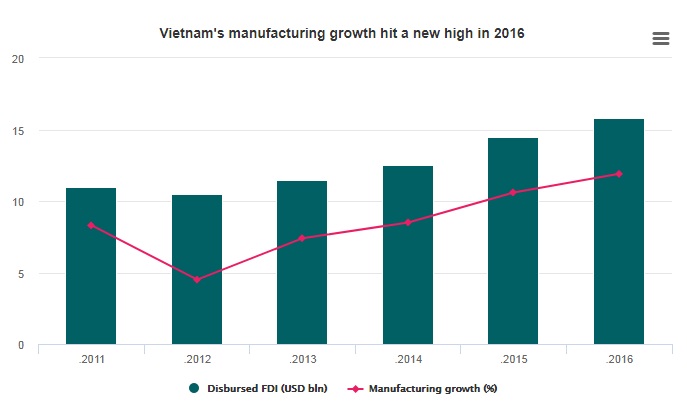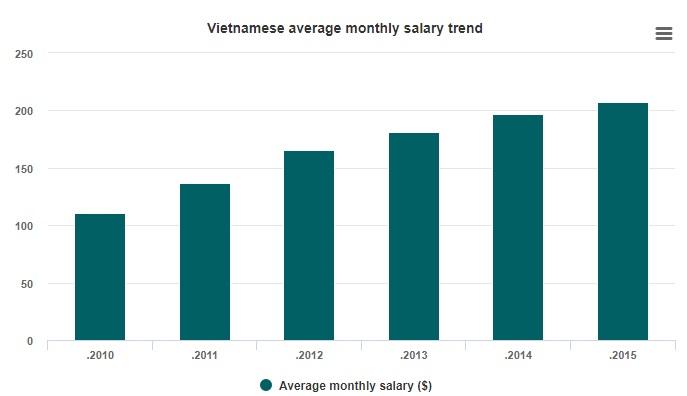Vietnam’s economic growth to out-tiger China by 2018: UBS report

Laborers work at TAL garment
factory in Vinh Phuc province, Vietnam May 23, 2017. Photo by Reuters
Increased foreign investment is putting
Vietnam on the right track.
Swiss investment bank UBS has forecast that Vietnam will
marginally outpace China’s economic growth for the first time in 2018.
For the past 30 years, China has been the
world's fastest growing major economy, emerging as the star of Asia.
However, last year China's economy grew by 6.7
percent compared with 6.9 percent in 2015, according to official data, marking
its slowest growth since 1990.
UBS predicts Vietnam's economic growth will
expand by 6.5 percent in 2017, slightly lower than the 6.7 percent target set
by the government, but still above 6 percent for the fourth consecutive year, defying
the Asian slowdown.
Vietnam’s economy expanded by 5.73 percent on-year in the first
half of 2017, official data showed, mainly fueled by foreign direct investment
(FDI), according to the UBS report.
Vietnam’s FDI disbursement has grown at a compound annual rate of
over 10 percent in the last five years, and actual disbursement reached a
record $15.8 billion last year.
During the first half of 2017, the country also welcomed over $19
billion in investment pledges, leaping 55 percent from a year earlier, mostly
from North Asia’s technology powerhouses.

The increased FDI flowing into Vietnam has resulted in a hike to
the average income. The average monthly salary witnessed an increase of 88
percent from 2010-2015, according to UBS.
By the end of this decade, Vietnamese urbanites
are expected to earn an average $714 per month. Vietnam's emerging consumer
class, according to the report, will pave the way for investment growth in the
country's promising retail sector, especially with investment from overseas.

However, UBS warned of the risk of trade protectionism following U.S. President Trump's decision to ditch the Trans-Pacific Partnership this year.
"Vietnam remains largely dependent on
foreign capital and foreign technology. An FDI-led economic model is vulnerable
and instable," said Professor Pietro Masina of the University of Naples,
who has spent years studying Vietnam's economy.
(Source: vnexpress)


